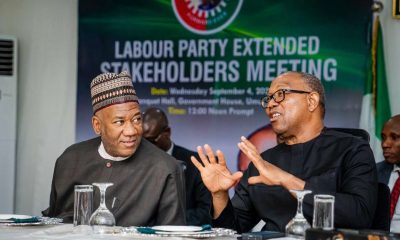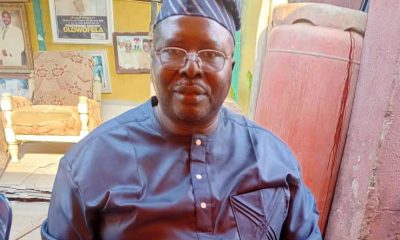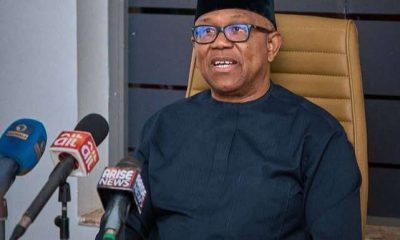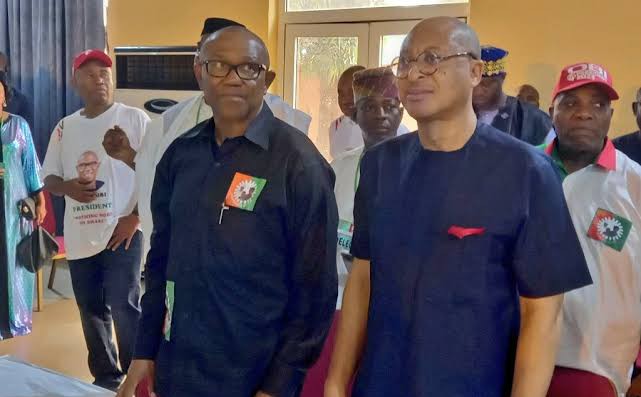Business
Obi warns against unsustainable borrowing, urges fiscal responsibility

Former Labour Party presidential candidate, Peter Obi, has raised alarm over Nigeria’s mounting debt profile, warning that the country’s current borrowing practices are unsustainable and lack transparency.
Obi’s comments came in response to the Senate’s July 22, 2025, approval of additional external borrowing amounting to $21 billion, €2.2 billion, and ¥15 billion for the 2025–2026 fiscal cycle. The Senate also approved a N750.98 billion domestic bond issuance and a €65 million grant.
With Nigeria’s public debt already at N149.39 trillion as of the first quarter of 2025, Obi estimated that the new loans — roughly N37.2 trillion — would push the total to around N187 trillion, with the figure likely to surpass N200 trillion by the end of the year.
‘Debt-to-GDP ratio at historic levels’
In a statement via X on Tuesday, Obi warned that the country’s debt is approaching dangerous levels.
“As our GDP before rebasing was about N269.2 trillion (about $180 billion), the government has borrowed nearly 70% of our previous GDP. Even after rebasing, which increased our GDP to N372.8 trillion (about $243.7 billion), the approved loans represent about 50.16% of GDP — the highest debt-to-GDP ratio in our history,” Obi said.
The former Anambra governor lamented that the surge in borrowing has not translated into meaningful improvements in critical sectors such as education, healthcare, infrastructure, and security. He highlighted a year-on-year debt increase of N27.72 trillion and a quarter-on-quarter rise of N4.72 trillion.
“We are accumulating exponential levels of unsustainable debt with little or nothing to show in critical areas such as education, healthcare, electricity generation, security of lives and property, and poverty reduction,” Obi said.
He noted that education remains underfunded, healthcare services remain inaccessible to millions, and insecurity has worsened despite a spike in security spending from N2.98 trillion in 2023 to N4.91 trillion in 2025.
“Over 10,217 people have been killed and 672 villages sacked between May 29, 2023, and May 29, 2025,” Obi added.
Obi decried the poor state of Nigeria’s infrastructure, pointing out that of the country’s 195,000km road network, about 135,000km remain unpaved and largely unusable. He also criticised the power sector, noting that the national grid continues to generate less than 5,000MW for over 200 million Nigerians.
“More than two years into this administration, and despite unprecedented borrowing, we are still faced with worsening poverty levels, with about 133 million Nigerians — or 63% of the population — classified as multi-dimensionally poor,” he said.
Obi referenced a report by Médecins Sans Frontières (Doctors Without Borders), which revealed a growing malnutrition crisis in Northern Nigeria, with Katsina State among the hardest-hit areas. He noted that 652 child deaths have been recorded due to hunger-related causes.
“This is a country blessed with enormous resources, yet no one should go to bed hungry. Unfortunately, a persistent failure of leadership has pushed the majority into deepening poverty,” Obi said.
While acknowledging that borrowing is not inherently bad, Obi emphasised that loans must be sustainable and tied to productive ventures with measurable outcomes.
“This current pattern of borrowing without accountability, without transparency, and without transformational impact is simply mortgaging the future of our children,” he warned.
He called on the government to adopt a more disciplined economic approach:
“We must return to prudent economic management, cutting the cost of governance, blocking leakages, investing in human capital, and building a productive economy.
“It is time to stop this fiscal recklessness. We must build a New Nigeria, where leadership is accountable, development is people-centred, and every kobo borrowed delivers measurable impact,” Obi concluded.











